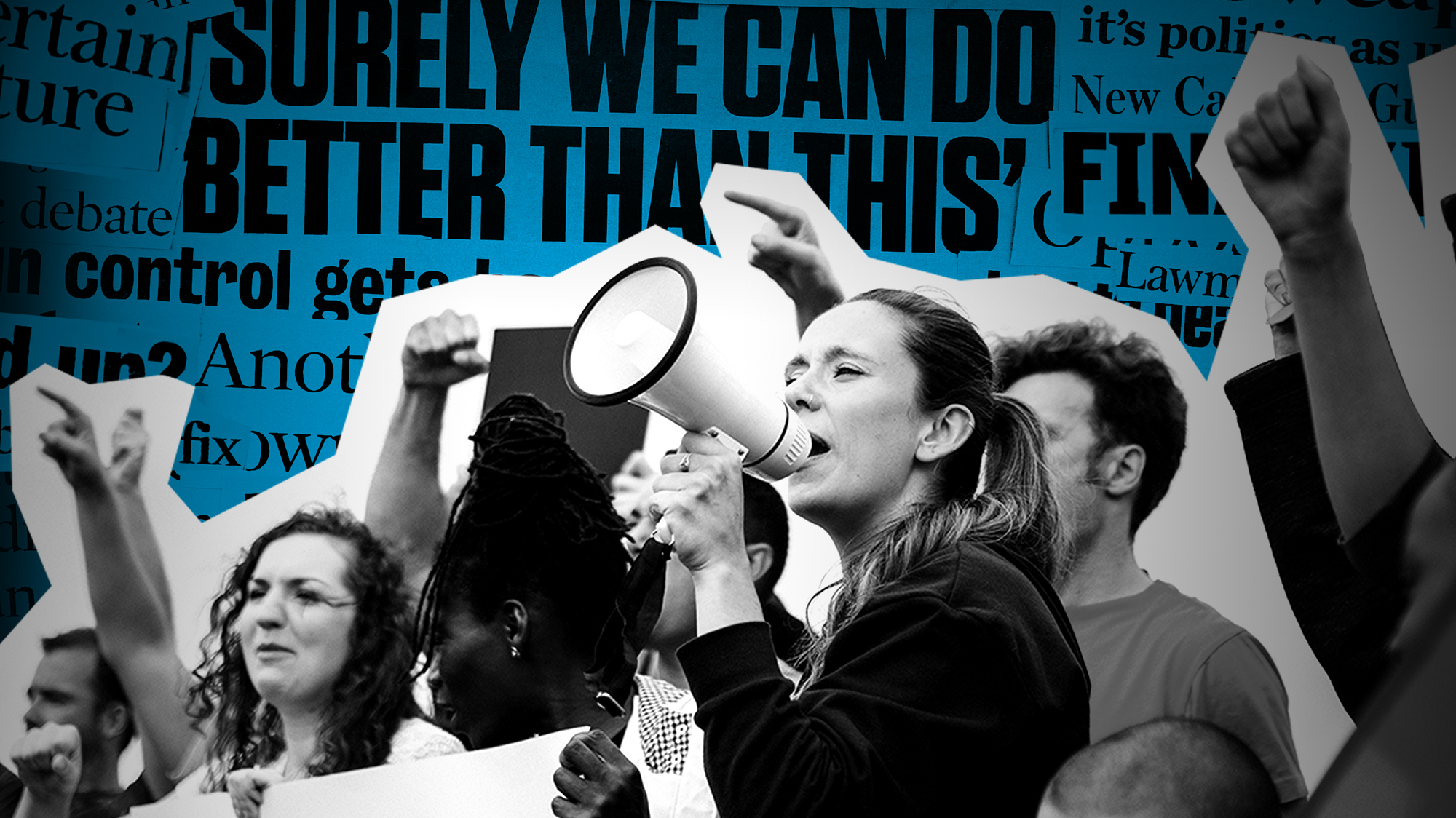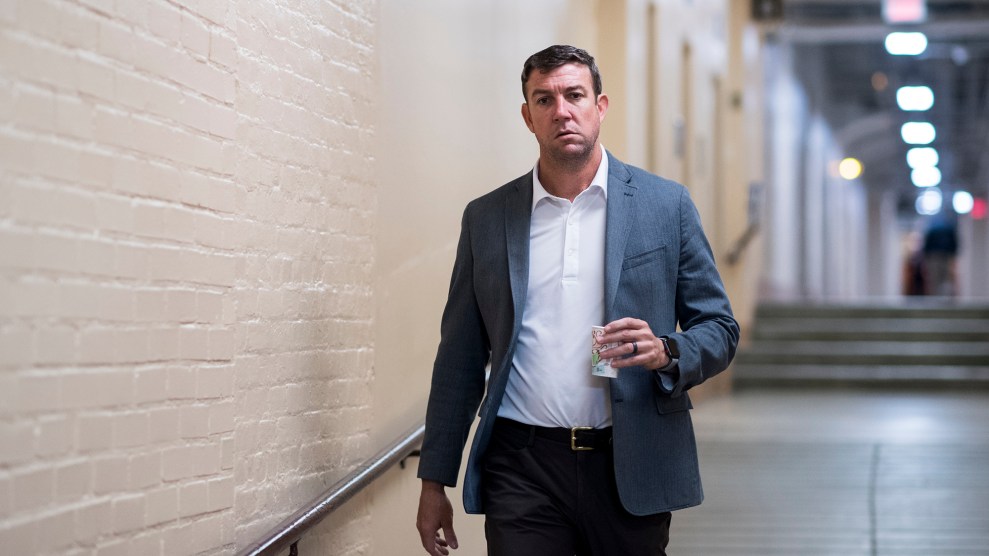The two of us came of age in newsrooms at the cusp of the digital age—late enough that you could tell everything was about to change, but early enough that old habits still held unquestioned sway. Some of these (like smoking at your desk) were soon to vanish, but others have been stubbornly hanging around. One that has become particularly dangerous in this age of attacks on journalism (and the notion of verifiable facts themselves) is the assumption that as a journalist, you should avoid thinking too much about your audience.
Like many dated ideas, this one began as good common sense: During the media corporatization wave of the ’80s and ’90s, profit-obsessed owners pushed for sensationalism over public-interest reporting in the name of “what readers want.”
The chains that were gobbling up newspapers and magazines were more interested in boiled-down news updates than difficult, controversial stories that were assumed to turn readers off. Accountability journalism and investigative reporting were on the chopping block; journalists concluded, understandably enough, that the only way to protect hard-hitting reporting was to keep those pesky readers out of the inner sanctum of journalistic decision-making.
But an inner sanctum easily becomes an ivory tower, especially if it’s built on false assumptions. What so many of us journalists didn’t realize was that building a moat around the newsroom was cutting us off from our natural allies: you. We forgot that readers had precisely the opposite motivations and interests from corporate bosses. Survey after survey, including a notable report from the Reuters Institute at Oxford University last year, tells us that yes, audiences want to be entertained, but they also want to be informed and shown how the actions of the powerful affect their daily lives, and gain ideas for how to make the world a better place.
That’s what journalists and other storytellers live to do. But the corporate owners that came to control the news business wanted something else: the most efficient assemblage of eyeballs to be monetized. They needed all of us, readers and journalists, to deliver revenue—not just to pay the bills, but to crank out ever-increasing quarterly profits. That’s how we got faster, cheaper, and thinner news coverage, and more intrusive and screamy advertising.
None of that was about what audiences actually wanted (and needed). It simply cheapened the news in the interest of profit. And it’s no coincidence that at precisely the same time the press found itself on the ropes, the politics of disinformation and demagoguery triumphed. The “fake news” attack is so effective in part because real news has grown so weak.
But if journalism is on the ropes, it’s not dead yet. Because what’s left of our profession is finally evolving beyond the fear of “pandering” to audiences, and learning that our interests and yours are the same. We all want truth and transparency, and we fear corruption and lies. We face the same dangers. We’re in this together.
We think a lot about all this because one of the great things about being a reader-supported nonprofit is that at Mother Jones, we never had to build a moat around the newsroom. We answer to you instead of investors or corporations, and that’s been the case since we started publishing as a nonprofit magazine in 1976. Readers (and, in the age of video and podcasts, viewers and listeners too) sustain our work, and while you never boss us around, you have always been generous with advice and ideas when we’ve asked.
And now, digital tools allow us to do more asking—to find out which questions are most burning for you, where you have knowledge and stories to share, and how journalism helps you make change in the world.
Last year, we told you about an idea we had for reporting on the crisis America faces. With your help, we launched an ambitious new Corruption Project to go deep on the rot at the core of so much of the daily crazy. We asked if you would help us build a team with the time and space to follow stories wherever they lead, and publish a series of special investigations in our magazine and via a multimedia portal to make a big splash in the summer of 2020. (And you did! More than 10,000 readers contributed to the crowdfunding campaign, raising the $500,000 needed to both meet our regular budget and dig deep into systemic corruption.)
But we didn’t just ask you to support the project with money. We also hoped to get your ideas on which kinds of stories to look into. Many hundreds of you responded, and we hope that you will keep helping us think through the priorities.
This is not the way investigative projects have traditionally been run—usually it’s more like “we’ll figure out what’s important and we’ll let you know when we’re done.” But in a newsroom that is funded by and answers to its readers, that doesn’t cut it. So much of journalism is choices about which stories to prioritize. We’re hoping you’ll help us make these choices as we decide where to focus the work ahead to make the greatest impact.
The biggest thing that came through loud and clear in the responses: You see corruption as the essential story of this moment, and a framework for understanding the crisis of democracy. A reader (and Vietnam combat vet) from Georgia wrote, “I firmly believe Citizens United began the corruption you speak of today. Americans need to know the specifics of what it represents and how criminals have taken advantage.” Many readers wrote about how flagrantly the Trump administration seems to be selling out the public good for private gain. But many want us to also investigate corruption at every level of government, from the White House to your local city council or district court. And readers wanted us to highlight the work people are doing to restore a connection between the people and the government that is supposed to serve them. Finally, many of you shared examples of how corruption affects ordinary people directly—from the price of a vital drug to the process by which road spending is allocated.
Starting from these themes—corruption as a systemic and ongoing threat to democracy, that hurts ordinary people directly and needs to be tackled by highlighting specific examples and solutions—we began sketching out a road map for our reporting.
Here are eight lines of investigation we’re starting to think about in the newsroom. As you read through, know that we’d like you to vote on which you think will be most impactful at the end. Input from the community will help us refine our plan, and we’ll keep you updated as we go (you’re the ones who funded this project after all!).
1) It’s (Almost) All Legal: Remember when Citizens United was a story? Trump’s supernova of corruption (and at least one billionaire’s plausible path to the Democratic nomination) has made us almost forget about those traditional forms of influence buying. But campaign spending (secret and otherwise) will play a huge part in the electoral outcome this year, not just for the White House but for the all-important congressional and state races as well. This issue doesn’t make headlines anymore, but it could be a focus of our Corruption Project.
2) The White House ATM: Virtually everything the president touches is tied in some way into his businesses—from the big issues (his companies employing undocumented immigrants even as he demands a wall) to the everyday (his winemaking business that may benefit from his threats against French wine). Jared Kushner’s business and political dealings alone deserve a chapter, starting with his pandering to Saudi Arabia’s Mohammed bin Salman while seeking funding from a firm backed by the autocrat’s government. And because these conflicts of interest are so vast and everyday, they are also poorly understood—because much of the media coverage is not connecting the dots.
3) Foxes in the Henhouse: After Scott Pruitt’s extravagant taste in furniture (and other assorted scandals) cost him his post at the Environmental Protection Agency, the top job went to a former lobbyist for a coal company whose CEO donated at least $1.3 million to Trump. Oh, and that same CEO sent a policy wish list to the White House, which so far has followed it almost to the letter. Commerce Secretary Wilbur Ross has collaborated with a Russian oligarch to profit from the revival of a collapsed European bank. Education Secretary Betsy DeVos’ family has invested in firms tied to the for-profit college industry whose interests her department is promoting. And where to even begin with the Pentagon, where within about a month an ex-Boeing exec was replaced in the top job by an ex-Raytheon exec, succeeded briefly by a Goldman Sachs alum, who was replaced by the ex-Raytheon exec. The entire administration is rife with conflicts of interest that would be scandalous at any other time; our project could aim to assemble them all.
4) The Dark Web of Money: The Panama Papers and Paradise Papers showed how much there is to investigate in the offshore havens and international maildrops where the world’s wealthiest—from Vladimir Putin’s cronies to America’s corporate tax dodgers—have stashed their money. This is hard work (it took our reporters months to unravel just one thread involving shell companies in Scotland, politicians in Albania, and Republican operatives in Washington), so most journalists can’t take the time to do it—but with reader support to go after exactly these kinds of stories, Mother Jones can if you want us to.
5) One Person, No Vote: Why can lawmakers pass abortion bans that voters—even in states like Alabama and Georgia—say loud and clear are too extreme? Because the infrastructure of our democracy has been eroded to the point where, in many states, it’s not the majority that determines electoral outcomes—it’s a web of laws and techniques that systematically deprive many citizens of their voice. And more of that is in the offing with the Trump administration dedicated to using even seemingly neutral tools like the census to cement minority power. It’s time to call these machinations what they are: election corruption, aka efforts to manipulate the system to advantage vested interests.
6) City Haul: Local and state governments are extraordinarily susceptible to corruption—especially as the traditional media watchdogs disappear or are defanged. For example, earlier this year, James Pogue reported for Mother Jones on how a private online charter school whose founder was a prolific political donor was allowed to siphon tens of million of dollars in Ohio education funds while providing virtually meaningless online instruction to its students, many of them from poor families or struggling in traditional schools. As many our readers pointed out, this is a bipartisan problem—Democratic local officials play games with public contracts and pension funds just as Republicans do.
7) Crash and Cash: A story that remains incomplete, even years after the Great Recession, is how the financial crisis of the early 2000s—and the failure to hold those responsible to account—has continued to shape our political life as the Tea Party morphed into the Trump movement. If we don’t understand this particular history, are we doomed to repeat it? How are banking laws already being weakened in ways that facilitate reckless behavior? And even if another crash doesn’t come for a while, how many people and communities are still struggling with the effects of the last one? Our project could go deep on the legacy of the 2008 crash and the role of both Wall Street and white-collar crime, and the role that legacy plays in shaping today’s political landscape.
8) Climate Reckoning: Back when many newsrooms still reported climate as a “he-said-she-said” controversy, Mother Jones was exposing how Exxon Mobil was working to bury the science on global warming. Today, we see the outcome of those efforts: With Washington beset by denial, fossil fuel interests have had free rein and the fires, floods, and famines that scientists warned of are here. That makes it urgent to investigate how the industry continues to stonewall climate action. Bill McKibben, the journalist and founder of 350.org, told us that “doing business as usual in the face of a crisis is a form of moral corruption.” That’s a great point—should we investigate how fossil fuel interests are manipulating our politics?
Maybe you’re reading that list and thinking: You should do all of the above! True—and journalistically it’s an embarrassment of riches. But think of yourself as an editor for a moment, when your whole job is making choices. Where would you redouble your efforts for maximum impact right now? Which areas would you set aside for future investigation?
Our journalists will still need to go out and dig, and the facts are bound to lead them in unexpected directions. But since this project was made possible by readers, we think it’s important for you to weigh in on what matters to you most. (Click on your choice to vote.)
If you’ve made your choice, thank you! We’d also love to hear your thoughts on why, or any specific ideas for which rocks to turn over. And of course, if you would suggest something that’s not on our list at all, we want to hear that too. You can share your thoughts here.
















